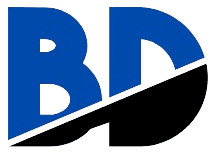Table of Contents
Accurate medical coding is the cornerstone of successful healthcare reimbursement. Every diagnosis, procedure, and service provided must be accurately translated into a universal language of codes to ensure proper billing and reimbursement. However, the importance of coding accuracy extends far beyond just financial implications—it directly impacts patient care, compliance, and the overall financial health of healthcare practices.
Professional Medical Billing Companies recognize the critical role that accurate medical coding services plays in maximizing reimbursements and minimizing claim denials. In this article, we’ll delve into the profound impact of coding accuracy on reimbursements and offer actionable tips for improving coding accuracy to optimize your revenue cycle.
The Significance of Accurate Medical Coding
Medical coding is the base of the healthcare revenue cycle, where correct medical codes are used and play a significant role. Correctly coded claims are key to getting compensation from insurance companies, government agencies, and patients at the right time. When codes are incorrect or incomplete, claims may be denied or delayed, resulting in lost revenue and inefficient functioning. However, mistakes in coding can lead to compliance issues, audits, and legal risks that harm healthcare practices’ reputation and sustainability.
Maximizing Reimbursements through Coding Accuracy
Coding precision affects reimbursement rates since the reimbursement amounts depend on the code assigned to each service or procedure. Documentation and coding standards have to be followed so that health care practitioners receive fair wages for the services they offer. On the other hand, these errors cause underpayments or denial of claims, contributing to negative impacts such as revenue loss and financial problems for healthcare practices.
Actionable Tips for Improving Coding Accuracy
Stay Updated on Coding Regulations: One important factor that is changing often in healthcare is the regulatory environment and coding conventions. It is recommended to enroll coders in continuing education programs or workshops to acquaint themselves with such changes.
Embrace Coding Technology: Make use of better coding software so that the process will be smooth and free from errors. These programs can provide live feedback, complete routine processes, and highlight discrepancies.
Standardize Your Workflow: Set realistic goals in terms of coding practices and create a dependable structure for the coder’s workflow. This entails checking or defining processes, roles, and communications between coders, physicians, and any other related personnel.
Prioritize Clear Documentation: Medical records play a vital role in coding since they provide the best and most detailed information in this area. This policy should encourage physicians to document information regarding procedures, diagnoses, and treatments in a comprehensive and comprehensible manner.
Establish Coding Protocols: Establish a standard of code and procedures that should be followed by the team to avoid inconsistencies within the team. This also implies policies regarding complicated cases, unclear documents, and certain codes.
Conduct Regular Audits: Conduct daily internal inspections to evaluate coding conformity and determine potential solutions and quantifiable enhancements. Identify frequent mistakes and describe how to use strategies to prevent them or provide countermeasures.
Invest in Continuous Training: Update your coding staff about the latest technology that is suitable for coding projects to reduce costs and increase efficiency. This may comprise training sessions concerning new coding frameworks, information regarding changes to regulatory requirements, and standards relating to coding accuracy.
Therefore, if you are determined to enhance coding performance and increase revenue, partnering with a trusted provider of medical coding services. For other resources on how to improve revenue, please read other blog posts on revenue cycle management and compliance.
Also Read: Medical billing and coding
Conclusion
Consequently, it is evident that coding accuracy plays a central role in influencing reimbursements. By focusing on accurate coding, healthcare practices can enhance the revenue cycle, minimize compliance issues, and provide quality patients’ care. It is, therefore, crucial to identify the strategies that will help support the learners when facing the complexities of the learning process.













